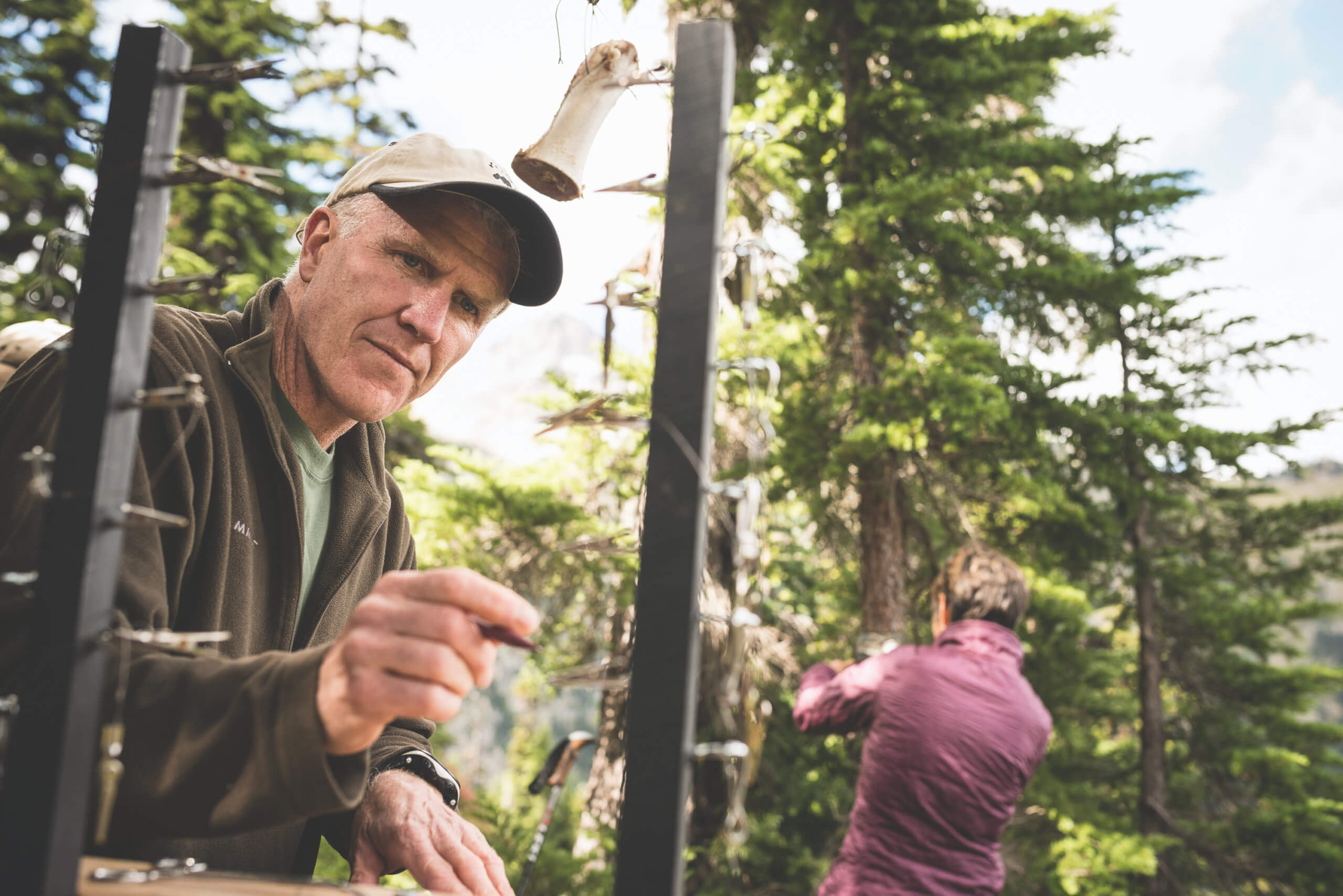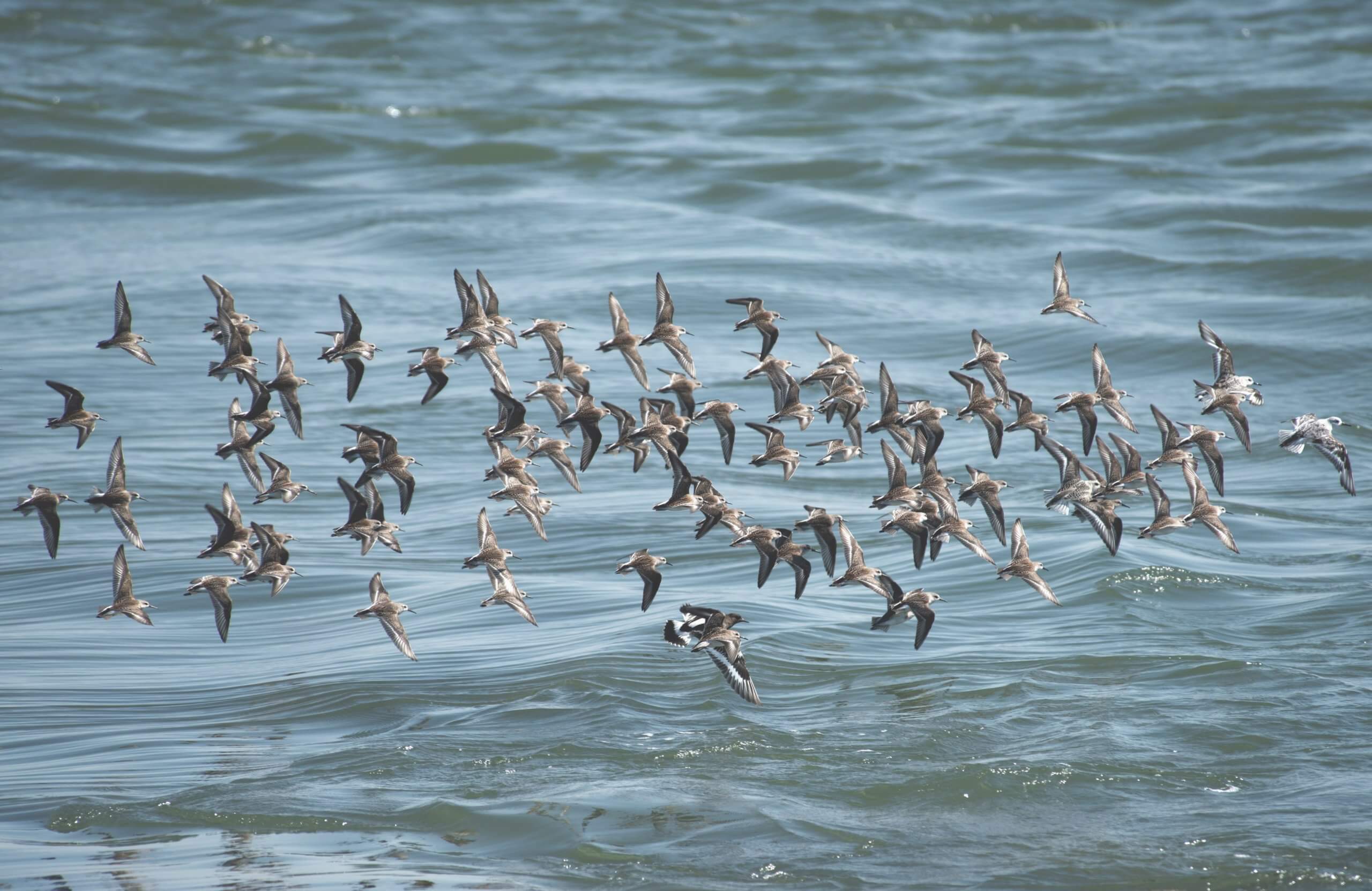The Michigan Meeting for Academic Engagement in Public and Political Discourse brought scholars, practitioners, and communicators to the University of Michigan from May 13 – 15 to discuss why and how scientific scholarship should contribute to issues of public importance. Instigated by Andrew Hoffman, a 2008 Leopold Leadership Fellow, the meeting inspired and stimulated both the people at the conference (including many faces familiar to COMPASS, such as Leopold Fellow and COMPASS board member Dawn Wright, and Leopold Fellows David Hart, Jennifer Cherrier, and Joe Arvai) and many who were following the active twitter stream #AcadEng.
COMPASS’s own Nancy Baron attended the meeting, and along with Baruch Fischhoff, Roger Pielke Jr., Dan Sarewitz, Dietram Scheufele, and moderator Mark Barteau, discussed “What are Some Guidelines for Public Engagement?” this past Thursday. We’ve reprinted her remarks from that panel here, edited for readability.
For COMPASS, “navigating the rules of public engagement” has been an ever evolving endeavor, which we described in a paper published in PloS Biology. We not only teach the core competencies of communication, we broker relationships. We help scientists find their way into the right conversations, with the right people, at the right time. We are coaches and navigators. I have worked in the trenches for the last 15 years with hundreds of scientists, many of them conducting research in controversial fields such as fisheries, fire ecology, and climate change. Their success stories inspire me; it’s what keeps me in this line of work.
I am honored and delighted to be on this panel. One of these things is not like the others – meaning me. My fellow panelists are all academic researchers whose work COMPASS shares in our trainings, because their social science provides critical context for communicating science and informs how scientists describe and discuss their own work. I am a practitioner, not an academic, so my perspective will be a little different, but I hope, complementary.
So here are my six practical guidelines for how scientists can engage effectively:
1. Show your passion
When I first started coaching scientists, there was much concern that revealing passion for what you studied was unbecoming of a scientist, even “unscientific.” It was something to be avoided. I’ve found time and again that the scientists willing to reveal a part of themselves are, by far, the most effective communicators. It’s not only the “What?” or the “How?” – what most people are interested in is the “Why?”
Why do you study what you do? Why do you care? Why does it matter to the rest of us? Communicating your “why” is a powerful way to humanize your science. Many scientists see a profound difference in how interested people are in their science, when they explain their “why.”
Susan Fiske, a Princeton University researcher, has found that scientists have the respect of the public but not their trust. Scientists are seen as competent but cold in comparison to other professions. Trustworthiness, Fiske says, is a quality produced by a combination of perceived warmth and competence, and evidence suggests “warmth is judged before competence,” and has more impact on how people respond to what you say.
Yet as a scientist you are trained to be dispassionate, to write and speak in the passive voice. Some of the most funny and charming scientists I know suddenly become rigid and boring when they make a formal presentation. They put on their science face. And lose their audience.
From what I have seen, the most effective aspect of engagement is to be – engaging. This means being yourself. Your best self – the self who can capture the interest of your friends and have them listen to you, spellbound.
I thought Andy Hoffman’s recent speech to graduating students at Erb was incredibly moving because he talked about what HE believed. “So, while I may teach that we have to convince others to protect nature through self-interest, financial incentives and pragmatic reasons, I believe we have to protect it for reasons that evoke words like sacred, divine, reverence, and love. We protect and devote ourselves to what we love.”
If you want to win the hearts and minds of the public and policymakers, you have to be forthcoming with your own.
2. Tell stories
“Stories are data with a soul,” says story researcher Brene Brown. They are powerful and persuasive. We remember them longer and hold them closer. At the #AcadEng Meeting, Richard Alley gave an outstanding keynote. Everything he said was built on a bedrock of science, but it was memorable because of the stories and how he told them – his brilliant and quirky personality shining through.
3. Find a community of support
You can’t do it alone. You need a network of other scientists to encourage and embolden you in your efforts. I think this meeting was designed by Andy Hoffman to make this happen, both within the University of Michigan and by bringing in a broader community of experts and examples. Institutional support is essential. Reward those who do engage in outreach. Make it part of the tenure process. This is happening in places now around the country. The Dean of the College of the Environment at the University of Washington, Lisa Graumlich (a Leopold fellow) is doing this. She tweeted us her perspective during the meeting, saying “Why not extend definition of research to include engagement as logical end product of engaged scholarship?”
4. Find a mentor
And my advice for young scientists, choose an advisor who not only has the academic credentials but who also shares your values to make your science matter. Pick someone who’s got your back, will guide you and will help you walk the fine lines that are especially important to young scientists. If the institution does not support these values, you might consider looking elsewhere for the leadership that will.
5. Take the long view
Most scientists I know who have suffered backlash have few regrets. They dust themselves off and respond with more and better science. Remember too, as poet Susan Musgrave says, “our mistakes make the best stories, and that’s why we should not think of them as failures.”
6. “Know thy audience, know thy self, know thy stuff”
I’ll end with the enduring guidance from the late, great Stanford climate scientist Steve Schneider: “Know thy audience, know thy self, know thy stuff”
And remember that “staying out of the fray is not taking the ‘high ground’; it is just passing the buck.”



